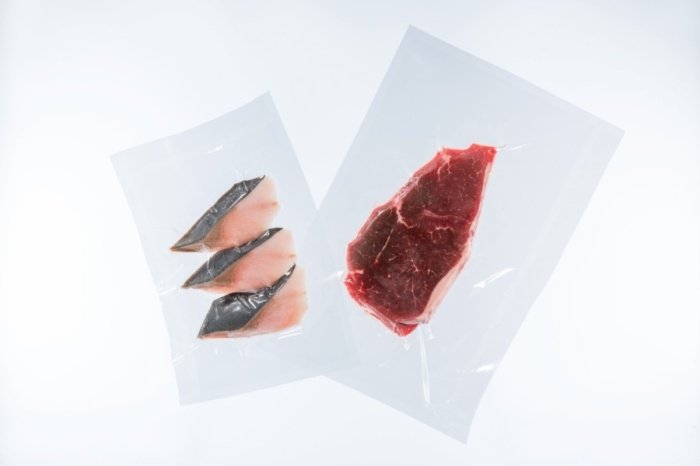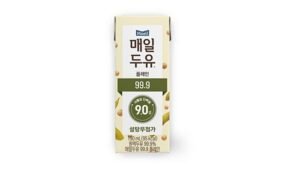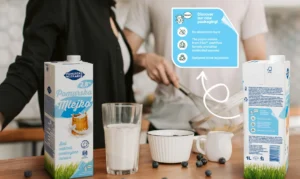Friday, 20 February 2026
Toppan launches eco-friendly packaging for frozen foods
Toppan claims the new packaging better retains the quality of meat, processed seafood, and other primary products kept in frozen storage for long periods of time Toppan Printing, a global…

Toppan claims the new packaging better retains the quality of meat, processed seafood, and other primary products kept in frozen storage for long periods of time
Toppan Printing, a global leader in communication, security, packaging, décor materials, and electronics, has launched new eco-friendly packaging that better retains the quality of meat, processed seafood, and other primary products kept in frozen storage for long periods of time.
Primary products, such as meat and processed seafood, are held in frozen storage warehouses because of the need for long-term storage. The quality of products deteriorates slowly under such storage conditions. For this reason, little attention has been paid to developing specialty barrier film packaging to better preserve frozen foods.
Toppan’s new packaging uses GL Barrier, a barrier film developed by leveraging original vapor-deposition and coating technologies, to reduce oxidation and therefore prevent discoloration, loss of flavor, and changes in food texture for a longer period than is possible with conventional packaging. These features reduce food loss and waste and facilitate expansion of distribution, by preserving food quality in regions without suitable infrastructure for frozen distribution.
The new packaging has improved environmental performance and is available in a mono-material structure that has reduced CO2 emissions and superior recyclability. The package also allows some food products conventionally subject to ultra-low-temperature frozen storage at -50°C or lower (F4) to be stored at higher temperatures of -18°C. This change cuts storage costs by around 60%, also helping to lower CO2 emissions associated with power consumption for freezing.
Testing conducted by Toppan in collaboration with universities since 2016 has shown that, compared with conventional materials, packaging incorporating Toppan’s proprietary GL BARRIER film and developed specifically for primary products, such as meat and processed seafood, extends the period for which quality is maintained under frozen storage. On the basis of know-how gained through this testing, Toppan is now able to select and offer frozen food packaging tailored for a wide range of contents.
“This new packaging has the potential to bring economic and environmental benefits for the food industry and wider society by maintaining food quality for longer,” said Masa Tatewaki, Executive Officer of Global Business in Toppan’s Living & Environment Division. “We will be expanding sales to food manufacturers, distributors, and wholesalers of frozen foods and will take advantage of the technology to develop more eco-friendly products that enhance freshness retention to contribute to a safer and more sustainable society.”
Technology
Tetra Pak extends paper-based barrier packaging to high-speed packaging lines in Asia
Feb 19, 2026 | Company News
Food Testing
Redefining Trust in Organic Foods through Independent Testing
Feb 13, 2026 | Food Safety and Testing
AFNOR International Eyes Global Food Safety Growth with HACCP Group Takeover
Feb 04, 2026 | Australia
More Popular
Strong Q4 Drives Coca-Cola Consolidated to Record FY2025 Results
Feb 20, 2026 | Beverages
The Kraft Heinz Company Appoints Nicolas Amaya as President, North America
Feb 20, 2026 | Company News
Orkla Food Ingredients acquires Senna
Feb 20, 2026 | Company News






